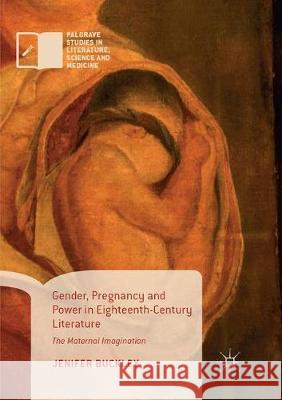Gender, Pregnancy and Power in Eighteenth-Century Literature: The Maternal Imagination » książka
topmenu
Gender, Pregnancy and Power in Eighteenth-Century Literature: The Maternal Imagination
ISBN-13: 9783319852539 / Angielski / Miękka / 2018 / 292 str.
Kategorie:
Kategorie BISAC:
Wydawca:
Palgrave MacMillan
Seria wydawnicza:
Język:
Angielski
ISBN-13:
9783319852539
Rok wydania:
2018
Wydanie:
Softcover Repri
Ilość stron:
292
Oprawa:
Miękka
Wolumenów:
01











